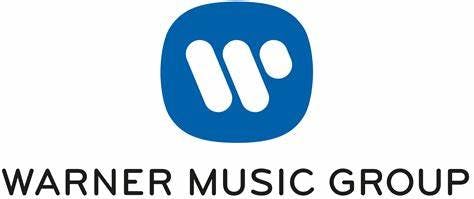
Warner Music Group‘s earnings call on Tuesday (November 22) ended on an upbeat note – and it’s easy to see why.
WMG posted revenues of $1.5 billion for the three months to end of September (up 16% YoY at constant currency), with adjusted EBITDA also up by 16% YoY.
As a result, WMG’s share price flew upward by 15% yesterday, as Bank Of America upgraded the firm’s stock.
ittingly, this glowing quarterly earnings announcement was the last in Steve Cooper‘s 11-year tenure as Chief Executive of WMG; Cooper will be succeeded in the role in the New Year by YouTube‘s Chief Business Officer, Robert Kyncyl.
Cooper spoke highly of Kyncl on WMG’s earnings call on Tuesday, calling him “a pioneer of the creator economy, whose command of technology will enable us to unlock new opportunities for our company, our artists, and our songwriters”.
Added Cooper of his 11-year run as Warner CEO: “It’s honestly been just an enormous amount of fun, incredibly interesting, and one of the greatest experiences of my working life.
“I’m really honored to have been a small part of the incredible Warner Music Group journey.”
Cooper’s valedictory remarks weren’t the only interesting revelations from Warner’s calendar Q3 (fiscal Q4) earnings call.
There were, naturally, the raw numbers to chew over: WMG’s recorded music revenues were up 13.1% YoY at constant currency in the quarter, with recorded music streaming revenues up 4.7% YoY; music publishing revenues were up 32.3% YoY.
Yet perhaps the most illuminating news to tumble out of Warner’s calendar Q3 earnings came from Cooper himself – and WMG CFO Eric Levin – when they were put on the spot by analysts.
MBW has delved deep into one particularly important data point discussed by Cooper on the call through here.
But a handful of other things stood out, too…
Warner Music Group categorizes revenue from a bunch of social, gaming, and video streaming platforms – Facebook/Instagram, TikTok, Snapchat, and Roblox amongst them – as “alternative” or “emerging” platforms.
You might recall that in September 2021, Steve Cooper indicated that Warner Music Group was generating around $273 million annually from these platforms (on a run-rate basis) across recorded music and music publishing combined.
A year on, that figure has bounced up considerably – with an increase of around +$100 million a year from then to now.
Cooper confirmed on Tuesday: “Including our recent deal with Meta, our annualized revenue from [’emerging platforms’] reached $370 million this quarter.”
That’s “annualized” because Cooper is extrapolating across the 12 months ahead. That extrapolation suggests Warner generated around $92.5 million from emerging platforms in the quarter to end of September this year.
Cooper told analysts on Tuesday that “the revenue growth curve of emerging [platforms] continues to outpace more established formats”.
“These new platforms are all heavily reliant on music,” he added. “And as engagement continues to grow, we expect monetization to follow suit.”
(Also worth noting: On Warner’s previous quarterly earnings call in August (covering calendar Q2 / fiscal Q3), WMG CFO Eric Levin said that “companywide streaming revenue from emerging platforms was… $345 million on an annualized basis”. This figure therefore climbed by around $25 million in calendar Q3.)
Warner Music Group’s recorded music streaming revenues have been a tricky thing to report of late, all because of a deal the company struck with a certain licensing partner in summer 2021.
That deal, with an unnamed digital partner, essentially saw Warner agree to a less favorable rate than it used to get paid by said platform.
Because of this, Warner’s recorded music streaming numbers in the four quarters to end of September 2022 have a year-on-year drag-back.
Example: In calendar Q3, WMG posted $774 million in recorded music streaming revenues, up 4.5% YoY at constant currency.
Yet if you omit the impact of this “new deal with one of [our] digital partners” – as Warner puts it – the company says its recorded music streaming revenues would have climbed 10.5% YoY in calendar Q3 2022.
Warner hasn’t confirmed who this streaming partner is, but sources tell MBW that it isn’t Spotify.
Regardless, here’s something we do know for sure: Warner’s $774 million in recorded music streaming revenue in the three months to September got a hefty monetary boost from Meta, parent company of Facebook.
That hefty boost likely took the form of an advance payment from Meta in conjunction with Warner’s new licensing deal with the firm, which will see ad revenue on Facebook shared with WMG. (Universal Music Group announced a similar deal with Meta last quarter.)
Eric Levin confirmed on Tuesday that WMG’s quarterly streaming figures in calendar Q3 were boosted by “the benefit from emerging streaming platform deal renewals”.
Who were those renewals with? Steve Cooper dropped the big name.
“[WMG’s recorded music] streaming revenue increased 5% [in calendar Q3],” said Cooper, “reflecting continued growth in subscription streaming and a recent deal with Meta [which] partially offset by the market-related slowdown in ad-supported revenue”.
This was one of the few negative points in WMG’s quarterly earnings – and it’s one for the wider music business to sit up and pay attention to.
We’ve known for some time that ad-supported streaming revenue growth was likely to decelerate at large music companies in the second half of 2022, due to the macroeconomic impact of a recession on general B2C digital ad spending.
But in calendar Q3 at Warner Music Group, that deceleration became a downturn.
CFO Eric Levin revealed on Tuesday that WMG’s ad-supported streaming revenue in the quarter saw “increasing pressure and declined by high single digits” (i.e between 5% and 10% YoY).
Levin clarified that WMG did not “include revenue from emerging streaming platforms” in this calculation. In other words, we’re talking about ad-supported revenues from the likes of Spotify and YouTube’s ‘free’ tiers… but not TikTok and Meta.
(This might explain why Universal Music Group was able to post a 5.2% YoY rise in non-subscription streaming revenue in calendar Q3.)
Some context: this single-digit drop in Warner’s ad-supported streaming revenue in the quarter took place in the same three months that YouTube saw its advertising revenues slip 1.9% YoY to $7.07 billion.
Levin noted that “ad-supported has been more challenging [than subscription] in the short term” and acknowledged that “the ad-supported market is in decline”.
He added: “Even though consumption of products [has gone] up, monetization [via ads] has gone down in the short term. When macro environments get difficult, one of the first things that we’ve seen consistently gets affected negatively is ad-supported. We saw it when COVID hit in 2020, and we’re seeing it now.”
He urged analysts to remember, however, that “before the macro environment was so challenging, ad-supported [revenues] would grow in line double digits pretty consistently with subscriptions”.
Added Levin: “When the macro environment starts to improve and economies start to improve, we would expect… ad-supported [streaming revenues] to rebound strongly and go back to growth.”
Murray Stassen, Music Business Worldwide, November 23rd, 2023


